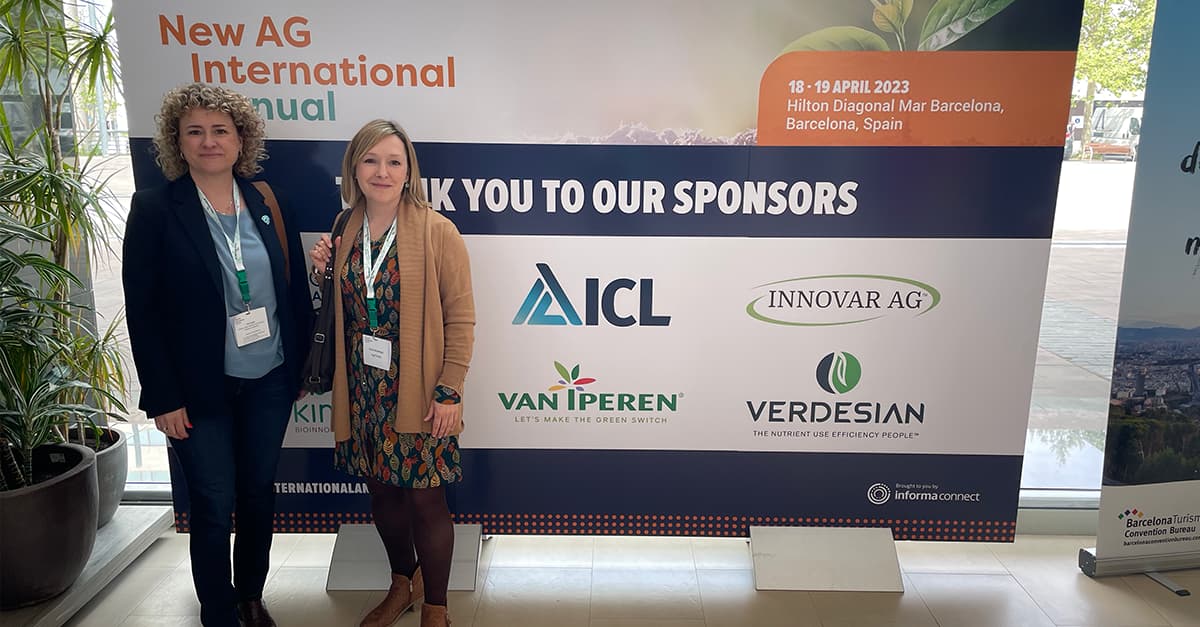 Last week, Xana Belastegui and Nora Alonso attended the New Ag International Annual conference in Barcelona, Spain. They joined over 300 professionals from more than 40 countries to share insights, attend expert panels and presentations, and discuss the latest innovations and solutions in ag.
Last week, Xana Belastegui and Nora Alonso attended the New Ag International Annual conference in Barcelona, Spain. They joined over 300 professionals from more than 40 countries to share insights, attend expert panels and presentations, and discuss the latest innovations and solutions in ag.
Many conversations centered on the current global challenges and solutions to mitigate them.
The global economy is sluggish due to high inflation, rising interest rates and banking failures. However, there are opportunities to invest in emerging markets and lower-income countries to remain resilient. With over 1 billion residents, including 42% of the world’s young people, Africa is seen as critical in the future global economic order. Countries that invest in African production will have an advantage entering Africa’s burgeoning consumer market. African engagement is imperative for European nations, as concerns over arable land, affordable labor and challenges with green energy and sustainable agriculture persist.
Similarly, the global supply chain continues to suffer as countries can no longer count on the ability to get energy, raw materials, inputs or final goods from anywhere in the world. Inventories are low. Nearshoring is necessary to minimize the effects of the supply chain and new trade routes must be established. Europe will become more bound to North Africa, seeking enhanced trans-Mediterranean commercial connectivity to increase supply chain resilience.
Economic and supply chain issues have created a systemic food crisis with the index for world cost at the highest rate in a decade. Even before the war in Ukraine, global food and fertilizer prices were surging and many countries were struggling. Now, countries that depend on imports from Russia and Ukraine are at risk of suffering long-term economic damages and human suffering.
Policy action, open trade and collaboration between nations is necessary to halt this crisis. Investment in climate resilient agriculture, agtech and irrigation, along with increased fertilizer production will also affect change.
—–
Located in Spain, Xana Belastegui and Nora Alonso work with AgriThority® clients in EMEA, North America and throughout LATAM. They use their expertise in business development and strategic planning with startups to help accelerate new technologies to market. Reach out to AgriThority® for more information and to capitalize on our scientific business, market and product expertise.



